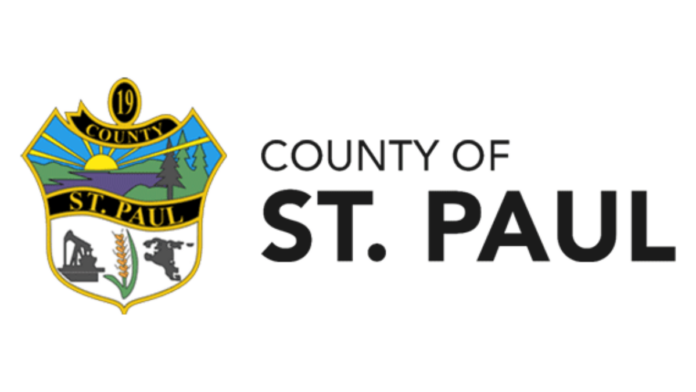The county of St. Paul has finalized its 2024 Municipal Operating and Capital Budget, shedding light on the financial landscape the region faces, including increased costs, loss of revenue, and the impact of provincial mandates.
During its monthly Public Works meeting on April 23, the county council approved the budget, which outlines operating expenditures of $31.07 million and capital expenditures of $9.9 million.
Operating expenditures, vital for daily operations such as public works services, dominate the budget, while capital expenditures cover equipment purchases and reserve allocations.
“The tough part of the budget… is we know people are really, really struggling right now,” acknowledged Reeve Glen Ockerman, recognized the challenges faced by taxpayers amidst rising costs.
The total budgeted expenditure amounted to $42.6 million, a notable increase from the previous year, primarily attributed to rising operating and capital costs. To finance these expenditures, the county anticipates $36.7 million in operating and capital revenues, primarily sourced from taxes. However, revenue is expected to decrease by $1.9 million compared to the previous year, partly due to the closure of the Lindbergh salt plant and reduced grants.
Reeve Glen Ockerman highlighted additional financial challenges, including increased contributions to the M.D of St. Paul Foundation for seniors’ housing and rising policing costs mandated by the provincial government.
The county’s response to these challenges includes a 4.75 percent tax increase, consistent with projections made following the approval of the interim budget in December 2023. Ockerman expressed empathy for taxpayers grappling with the increased cost of living, acknowledging the strain the tax hike may impose on households already facing financial difficulties.
Despite efforts to minimize costs, challenges persist, particularly regarding equipment replacement and maintaining service levels. Ockerman emphasized the dilemma of repairing versus replacing equipment, recognizing the long-term implications of short-term cost –saving measures.
Moreover, manpower shortages pose additional hurdles, particularly in maintaining essential services like road maintenance, further exacerbating financial constraints.
“As we face these challenges, it’s critical that we prioritize our spending and make strategic decisions to ensure the continued well-being of our community,” concluded Ockerman, highlighting the county’s commitment to prudent financial management amid mounting pressures.
The approval of the 2024 budget underscores the county’s commitment to fiscal responsibility while striving to address the evolving needs of its residents amidst economic uncertainties and fiscal constraints.




